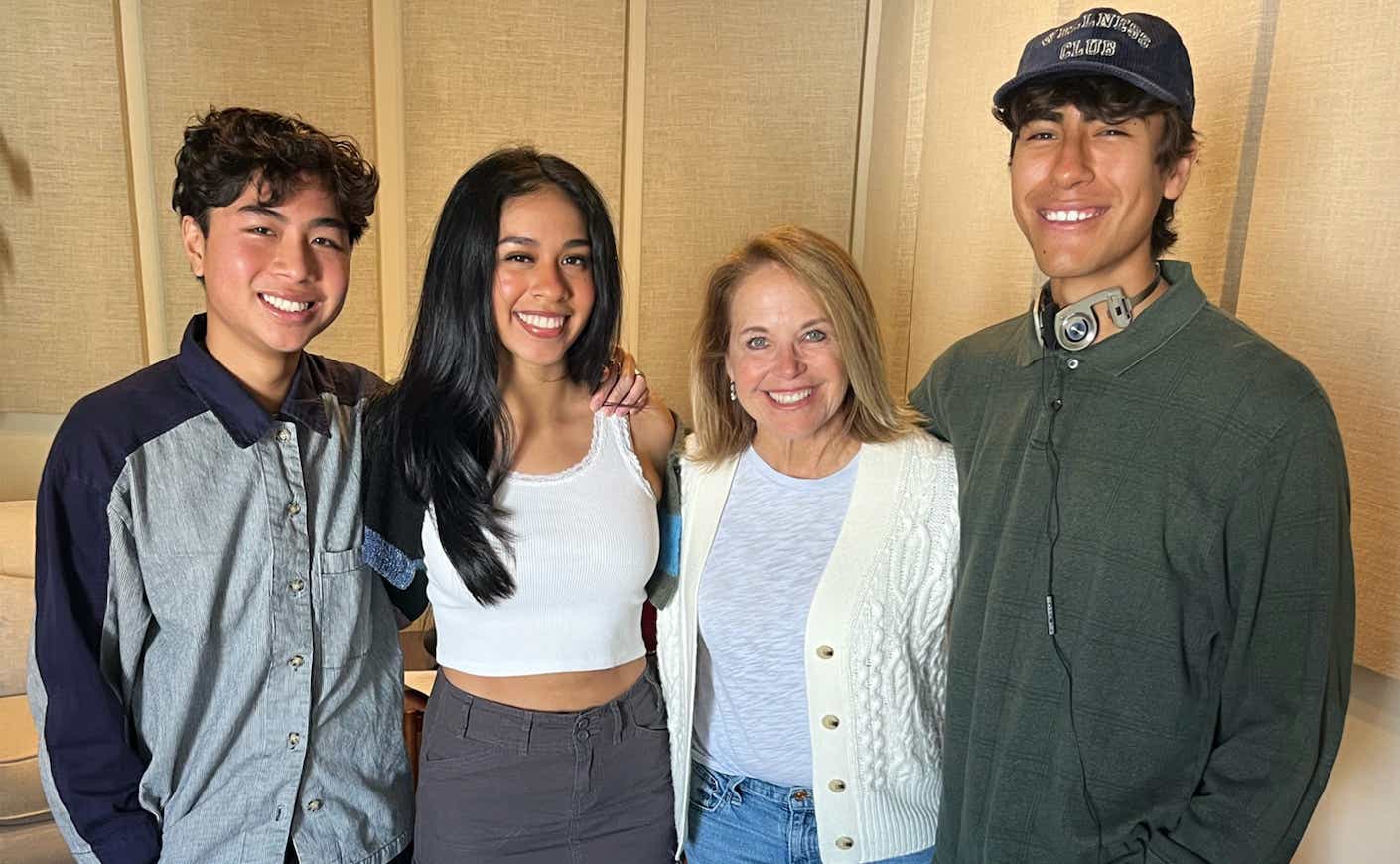If you've ever wondered why the young people in your life say they're distraught in ways you could never understand, you might want to make an effort to better understand their struggle. And we have just the podcast for that endeavor.
Mental health among children, teens, and young adults has become a very crucial issue: Suicide rates among Americans ages 10-24 increased by 60 percent from 2007 to 2018. In the midst of this crisis, teen Gael Aitor heard a couples’ therapy podcast and was inspired to create a similarly candid show about young adult issues like friendship, family, sexuality, and mental health.
The Teenager Therapy podcast is now an educational tool and emotional support resource that also provides unique insight into the world of Gen-Z. And yes, their episodes can help you begin to interpret your granddaughter’s anxiety, your son’s persistent sadness, or even your own current mental state.
In this episode of Next Question, Katie chats with three of the five Teenager Therapy hosts Gael Aitor, Kayla Suarez, and Thomas Pham. They explain how the social media landscape shapes teen relationships, how young adults talk about sexuality and gender, and what adults can do to connect with their younger loved ones.
Here are some of our favorite moments.
Katie Couric: Have many parents listened to the show? Do you think parents are learning from your conversations just as teen listeners are?
Kayla Suarez: I know that they have because we've received some comments and DMs about them listening, which is…
Negative or positive?
Kayla Suarez: Positive. Because it helps them understand their child a little bit more, which is always nice to hear because it shows that they're taking some steps in the right direction.
We want to see our parents show us that they're also trying to learn, rather than us always having to talk about our feelings. Why don't you know? Why don't you talk about it too? I think a big part of it is leading by example, because vulnerability can be contagious. If you see one person talk about their feelings, it makes you more inclined to talk about it. Parents like to put up this act like they know what they're doing. They have all the answers. They're fine. Which I know is not right at all. So I think just being honest about that would go a long way.
Gael Aitor: I agree. Sometimes we'll speak on panels and one of the questions we get — which is funny — is just, “How can I help my children feel more comfortable opening up to me?”
I always give 'em the same answer: Vulnerability. You can't expect it without giving it in return. So I say to parents, if you want your kid to open up, you have to open up yourself. You have to show when you cry, when you're feeling hurt, when you are feeling vulnerable.
That's what really gives the message, “OK, it's safe.” Like, “I can do this too.” You're not just this parent, you're a human being. It shows your humanity.








